| Conferences > Emerging Technologies & Paradigms for In Vitro Dx Europe 2024 > Keynote Speakers |
| Register | Login |
Paul BohnArthur J. Schmitt Professor of Chemical and Biomolecular Engineering and Professor of Chemistry and Biochemistry, University of Notre Dame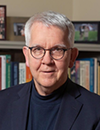 Paul W. Bohn received the B.S. from the University of Notre Dame in 1977 and the Ph.D. from the University of Wisconsin-Madison in 1981, both in Chemistry. After two years at Bell Laboratories, he joined the faculty at the University of Illinois at Urbana-Champaign (UIUC). In 2006, he moved to the University of Notre Dame where he is currently the Arthur J. Schmitt Professor of Chemical and Biomolecular Engineering, Professor of Chemistry and Biochemistry, and Director of the Institute for Precision Health. He served as Editor for the Americas for the RSC journal Analyst 2007-09 and as Chair of the Editorial Board 2010-14. Prof. Bohn is currently co-editor of Annual Review of Analytical Chemistry. His research interests include: (a) integrated nanofluidic and microfluidic chemical measurement strategies for personal monitoring, (b) chemical and biochemical sensing in mass-limited samples, (c) biochemical imaging, and (d) molecular approaches to nanotechnology, areas in which he has over 290 publications and 10 patents. |
Martyn BoutelleProfessor of Biomedical Sensors Engineering, Imperial College London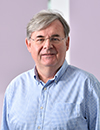 Martyn Boutelle is Professor of Biomedical Sensors Engineering in the Department of Bioengineering, Imperial College London, and Associate Provost for Estates Planning for Imperial College. |
Daniel ChiuA. Bruce Montgomery Professor of Chemistry, University of Washington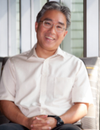 Daniel T. Chiu is currently the A. Bruce Montgomery Professor Chemistry, Endowed Professor of Analytical Chemistry, and Professor of Bioengineering at the University of Washington. He is a member of the University of Washington’s Center for Nanotechnology, Neurobiology and Behavior Program, and the Cancer Consortium of the Fred Hutchinson Cancer Research Center. He has authored more than 180 publications and is the inventor on over 40 issued patents. Dr. Chiu obtained a B.A. in neurobiology and a B.S. in chemistry at the University of California, Berkeley in 1993, and a Ph.D. in chemistry from Stanford University in 1998. |
Yoon-Kyoung ChoProfessor, Biomedical Engineering, Ulsan National Institute of Science & Technology; Group leader, IBS; FRSC, Fellow of Royal Society of Chemistry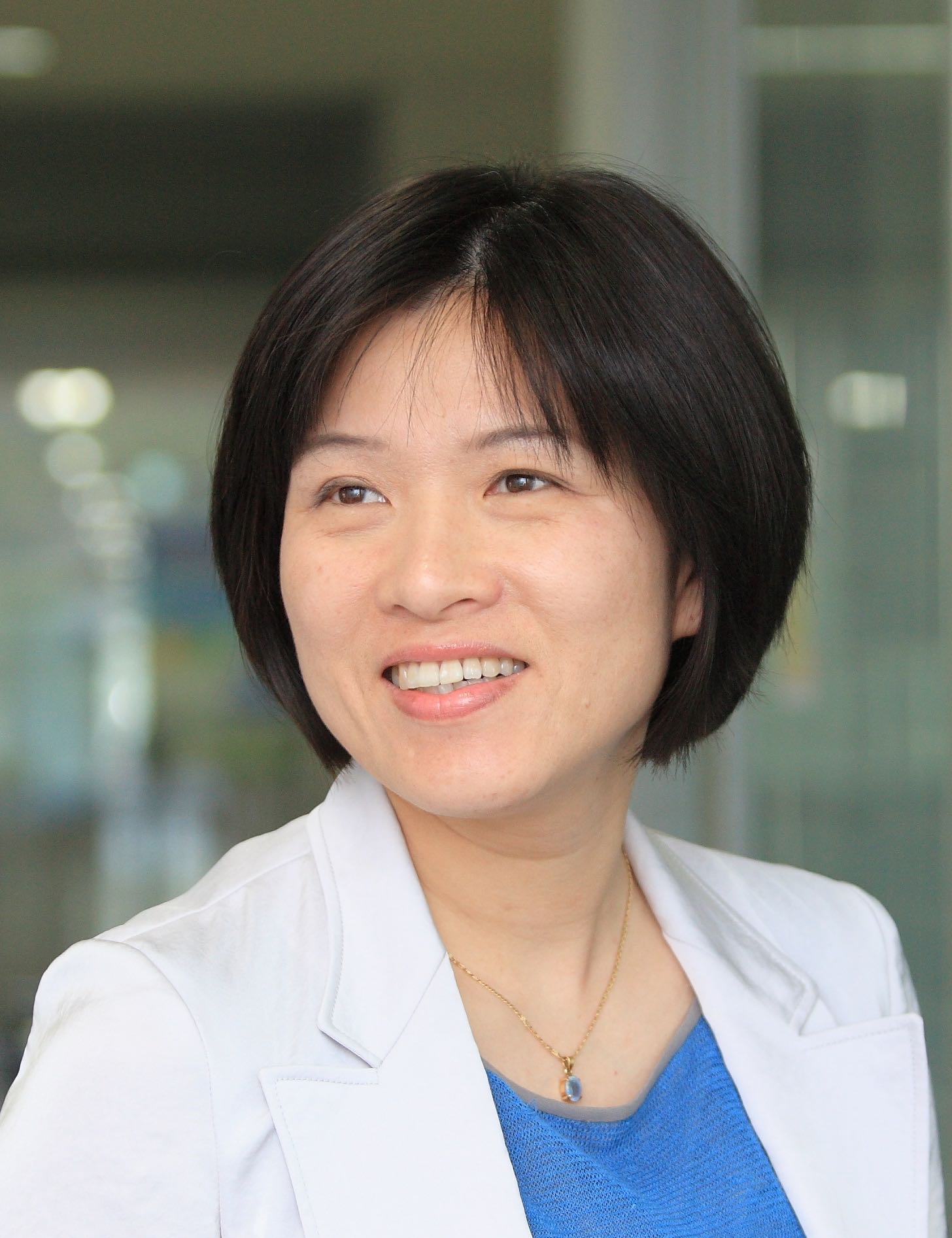 Yoon-Kyoung Cho is a full professor of Biomedical Engineering at UNIST and a group leader in the Center for Soft and Living Matter at the Institute for Basic Science (IBS), Republic of Korea. She is a member of the National Academy of Engineering of Korea (NAEK) and a Fellow of Royal Society of Chemistry (FRSC). She serves as a director at the Chemical and Biological Microsystems Society (CBMS) and an associate editor for Lab on a chip. She received her Ph.D. in Materials Science and Engineering from the University of Illinois at Urbana-Champaign (UIUC) in 1999, having obtained her M.S. and B.S. in Chemical Engineering from POSTECH in 1994 and 1992, respectively. She worked as a senior researcher (1999–2008) at Samsung Advanced Institute of Technology (SAIT), where she helped create biomedical in vitro diagnostic instruments. Her research spans a broad spectrum from fundamental scientific exploration to translational efforts, focusing primarily on microfluidics and nanomedicine. Her current research topics include a lab-on-a-disc for the detection of rare cells and biomarkers, quantitative analysis of single cells, and system analysis of cellular communication. She published over 135 journal papers and over 205 issued patents, many of which helped Samsung Electronics and two start-ups (Clinomics and LabSpinner) build commercial products. Discover more at http://fruits.unist.ac.kr. |
Brian CunninghamProfessor and Intel Alumni Endowed Chair, University of Illinois at Urbana-Champaign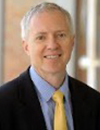 Prof. Cunningham has been a faculty member in the department of Electrical and Computer Engineering and the department Bioengineering at the University of Illinois at Urbana-Champaign since 2004, following a 15-year career in Industry. Prof. Cunningham’s technical focus is the utilization of photonics for biosensing in applications that include life science research, diagnostics, environmental monitoring, and pharmaceutical screening. He has over 90 issued US patents and over 200 peer reviewed journal publications. He is a Fellow of NAI, IEEE, Optica, RSC, AAAS, and AIMBE. He serves as the Director of the Center for Genomic Diagnostics at the Woese Institute for Genomic Biology, and as a Program Leader for the Cancer Center at Illinois on the topic of Cancer Measurement Technology and Data Science. In 2023, his technical contributions were recognized by Optica by the Michael S. Feld Biophotonics Award. |
Andrew GodwinProfessor and Division Director, Genomic Diagnostics, Founding Director, Kansas Institute for Precision Medicine, Deputy Director, KU Cancer Center, University of Kansas Medical Center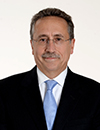 Andrew K. Godwin, PhD, the Chancellors Distinguished Chair in Biomedical Sciences endowed Professor, is a leader in the field of translational research and precision medicine. A native of Lawrence, Kansas, Andy graduated with highest distinction from the University of Kansas with a bachelor’s degree in Cellular Biology. He obtained his PhD in Molecular Biology from the University of Pennsylvania while carrying out his thesis research at Fox Chase Cancer Center in Philadelphia. Andy holds the distinction of being the only graduate student at FCCC to become a senior member (full professor with tenure). While at FCCC he had the pleasure of learning from “giants” in their respective fields of science. He was appointed leader of the FCCC’s Cancer Center Support Grant Ovarian Cancer Program in 2008 and served as co-leader of the Women's Cancer Program from 2009 to 2010. He was also the director of both the Clinical Molecular Genetics/Pathology Laboratory and the Biosample Repository at FCCC since their inception in 1995 and 1999 respectively, until leaving FCCC. |
Adam HallAssociate Professor of Biomedical Engineering, Wake Forest School of Medicine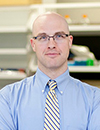 Adam R. Hall received his training in physics and materials sciences at the University of North Carolina at Chapel Hill, where he was a NASA Graduate Student Research Program (GSRP) Fellow and received the Ross & Charlotte Johnson Family Dissertation Fellowship. He then spent three years as a postdoctoral researcher at Technische Universitat Delft in the Netherlands. From 2010-13, he was an Assistant Professor of Nanoscience at the Joint School of Nanoscience and Nanoengineering in Greensboro, NC, where he earned awards for both his research activities and teaching. He joined the faculty of the Virginia Tech-Wake Forest School of Biomedical Engineering and Sciences in August of 2013 as an Assistant Professor in the Wake Forest School of Medicine. He was promoted to Associate Professor with tenure in 2021 and was appointed Assistant Director of Translational Research for the Atrium Wake Forest Comprehensive Cancer Center in 2023. Dr. Hall has published more than 50 journal articles, is an inventor on 5 patents, and his research has been supported by diverse agencies including the National Institutes of Health (NCI, NIGMS, NIBIB, and NHGRI), DoD, BARDA, 3M, and the North Carolina Biotechnology Center. His research focuses on translational applications of micro- and nanotechnologies. |
Tony HuProfessor and Weatherhead Presidential Chair, Tulane University School of Medicine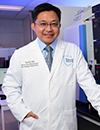 Dr. Tony Hu is a Professor in Biochemistry and Molecular Biology, Biomedical Engineering, and Microbiology at Tulane University. He is also the Weatherhead Presidential Chair in Biotechnology Innovation, founding Director of the Center for Intelligent Molecular Diagnostics at Tulane School of Medicine, and the fellows of National Academy of Inventors (NAI) and American Institute of Medical and Biological Engineering (AIMBE). Dr. Hu’s research focuses on engineered multi-omics, nanomedicine, mechanism-driven biomarker discovery and assay development. His research differs from conventional biomarker discovery and detection research for clinical microbiology in that it employs the special properties of nanomaterials to improve assay performance and reproducibility. His inventions are intended to serve as a model for the analysis of similar characteristics of infectious and malignant diseases to facilitate the development of a full spectrum of diagnostic, prognostic and treatment evaluation assays, and re-define the diagnostic criteria to differentiate disease stages using molecular tests as a long-term goal. His work has resulted in publications of over 150 high-impact papers, and 25 pat¬ent applications involving nanomedicine. Fourteen of those patents have been licensed by US-based or international companies. Dr. Hu’s lab has been consistently support¬ed by the DOD, NIH, Gates Foundation, WHO and others. Dr. Hu is also the co-founders of two biotech startup companies, Intelligenome Inc. in Houston, TX and NanoPin Technologies in New Orleans, LA. |
Erik VollebregtPartner, Axon Lawyers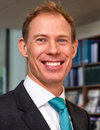 Erik specializes in EU and national legal and regulatory issues relating to medical devices, including eHealth, mHealth, software and protection of personal data. He is an expert in life sciences regulation at EU and Dutch level, with a focus on contracts, regulatory litigation against competent authorities and M&A. Erik was initially trained as intellectual property and competition lawyer, starting his career at the Directorate-General for Competition of the European Commission. He subsequently gained experience in contentious matters, commercial contracts, and transactional work at three large international law firms. He actively contributes to law and policy development at national and EU level via membership of specialized committees at branch associations and the European Commission. Erik also works as arbitrator in medical devices related disputes and is regularly retained as expert witness in foreign litigation. |
David WongFelix and Mildred Yip Endowed Chair in Dentistry; Director for UCLA Center for Oral/Head & Neck Oncology Research, University of California-Los Angeles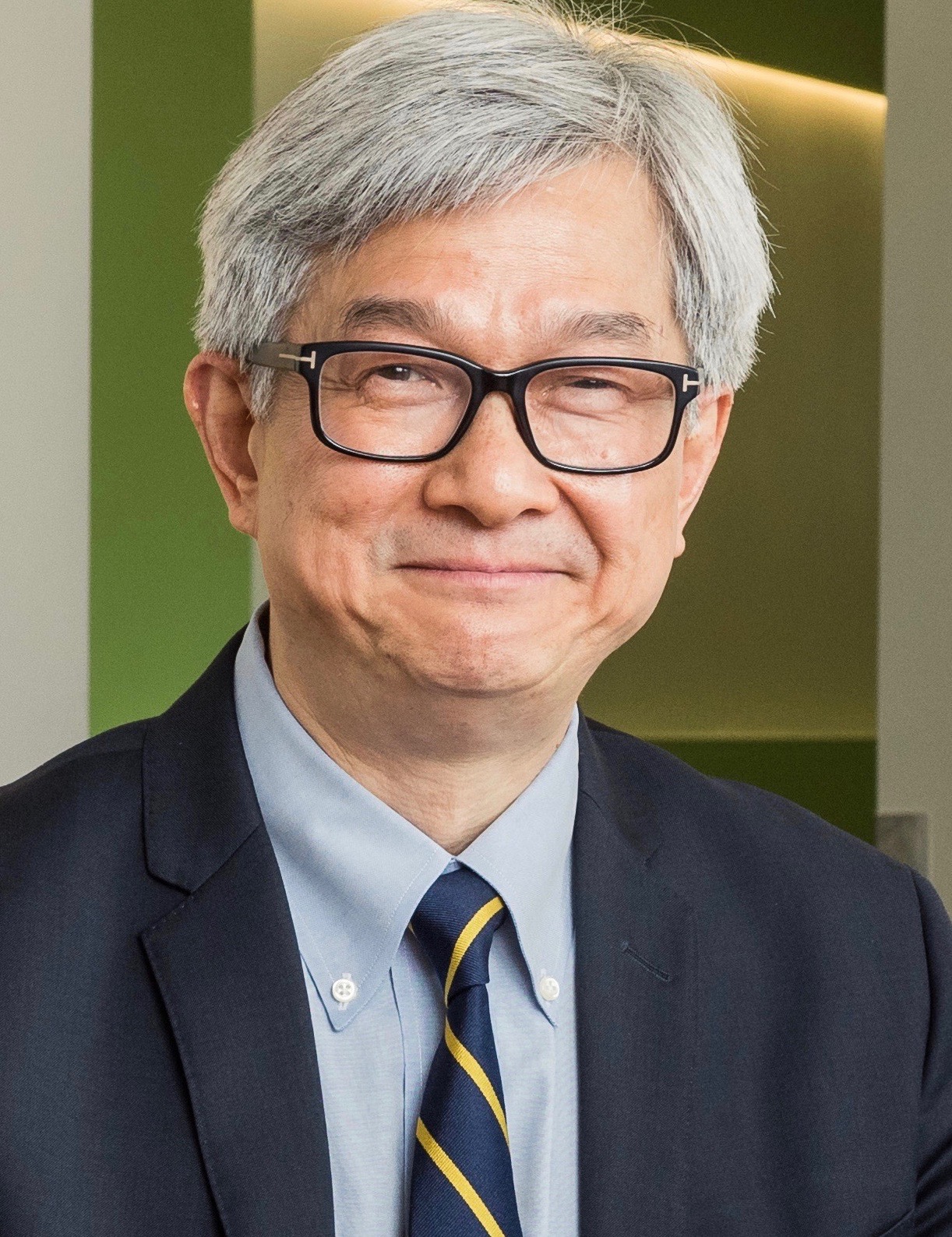 David T.W. Wong DMD, DMSc is Felix & Mildred Yip Endowed Professor, Associate Dean of Research and Director of the Oral/Head and Neck Oncology Research Center at UCLA. Dr. Wong is an active scientist in oral cancer and saliva diagnostics research. He has authored over 280 peer reviewed scientific publications. He is a fellow of the American Association for the Advancement of Sciences (AAAS), past member of the ADA Council of Scientific Affairs and the past president of American Association of Dental Research (AADR). |




